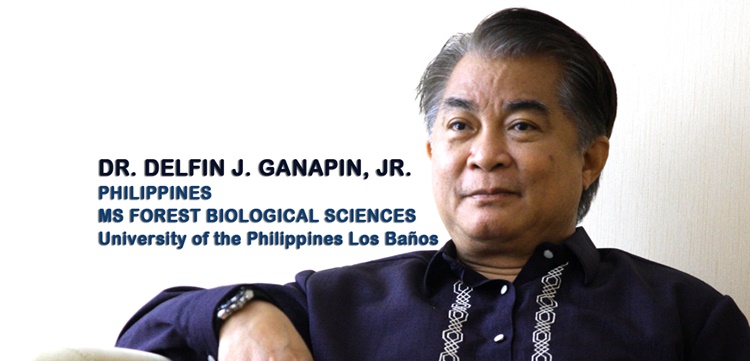When Dr. Ganapin became an officer of the Philippine’s Department of Environment and Natural Resources, his passion for the environment and the marginal sector were again translated into concrete actions with lifelong impacts. There he was able to strengthen the environmental impact assessment by introducing the social acceptability requirement for the Philippines’ environmental compliance certificate (ECC). This became the pattern for the “prior informed consent,” which is now enshrined in the United Nations Declaration on the Rights of Indigenous Peoples. He also conceptualized and set the precedent for setting up environment and social guarantee funds, which is an innovative insurance system to be used for stakeholder monitoring of impacts as well as providing immediate funds for affected communities to solve problems, for compensation, and for rehabilitation, should the need arise.
He led an internal advocacy within government to empower indigenous peoples and took the lead in conceptualizing and implementing an innovative ancestral domain claims program. The program allows IPs to have security of tenure for their conservation-oriented practices even as the law does not yet allow them the ownership of their traditional lands. These laid the ground work for the passage of the Indigenous Peoples Rights Act, which until now serves as a model and inspiration for those wanting to empower indigenous peoples in other parts of the world.
He also helped conceptualize and set up the Foundation for the Philippine Environment (FPE), which managed an endowment fund for the environment and sustainable development—something unheard of in the country and in the region at the time. Dr. Ganapin became FPE’s first Executive Director and provided the exemplary track record for effective and efficient grant-making organizations. Given FPE’s novel set up, Dr. Ganapin was invited to help conceptualize a similar endowment fund for Indonesia. He also became an organizing member of a global core group, which include McArthur Foundation, The Nature Conservancy, World Wildlife Fund, and the United Nations Development Programme (UNDP), helping other countries and their civil society groups to similarly set up similar endowment or environmental trust funds.
These regional activities ultimately accelerated to a global scale with his appointment as the Global Manager for the UNDP-implemented Global Environment Facility (GEF) Small Grants Programme (SGP) where Dr. Ganapin was able to transform the program into a global platform by adding 79 countries to its portfolio of 54 participating countries. Now SGP is GEF’s biggest program for community and civil society engagement.
For all these remarkable achievements, Dr. Ganapin has been awarded the Outstanding SEARCA Scholarship Alumni award. The award gives recognition to SEARCA’s graduate alumni who have personified SEARCA’s values and philosophy and have distinguished themselves through their personal achievements, professional accomplishments, public service, and other meritorious endeavors. This is the first time since its establishment that SEARCA will be giving such prestigious recognition to its alumni who it considers as ambassadors for agriculture and rural development in the region. Dr. Ganapin and 10 other OSSA laureates will be awarded during SEARCA’s golden anniversary celebration on 25 November 2016.
